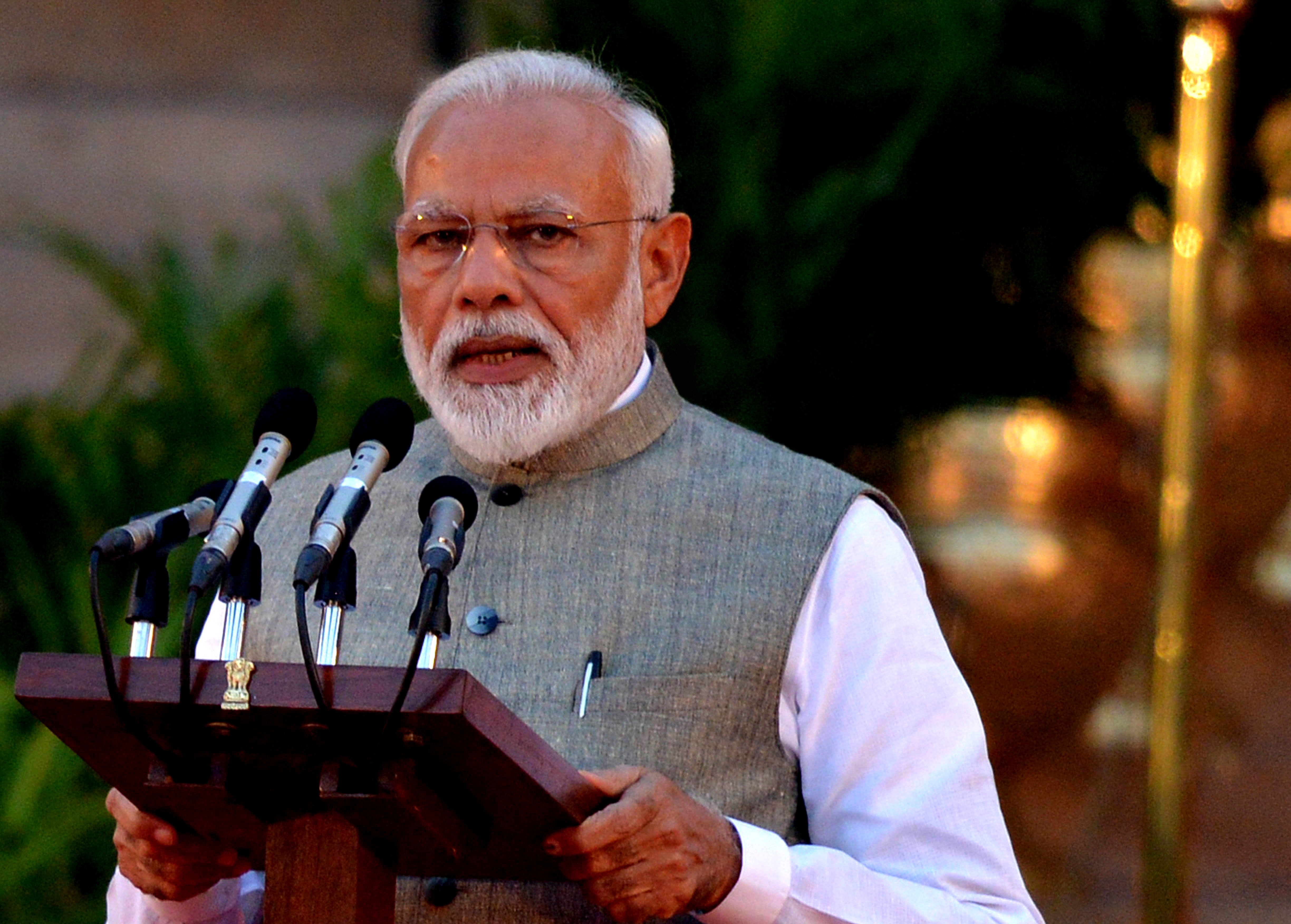Litmus test of Modi's 'First Neighborhood' policy
- By Ritu Raj Subedi
 0 Comment(s)
0 Comment(s) Print
Print E-mail China.org.cn, June 8, 2019
E-mail China.org.cn, June 8, 2019

Starting his second term as the Prime Minister of India, Narendra Modi appears to be in a better position to fulfill his "First Neighborhood" policy aimed at promoting peace, development and cooperation with India's neighbors.
In 2014, Modi commenced his first tenure with much fanfare, but in the years following, his neighborhood policy failed to yield the desired outcomes, largely owing to some miscalculated moves. Under Modi, India's relations with many of its neighbors initially soured. The 2015 Indian blockade on Nepal, military skirmishes with Pakistan, and the Donglang (Doklam) stand-off with China all blighted his prospects of improving foreign relations with neighbors through constructive engagement and people-to-people ties.
Modi now seems to be poised not to repeat past mistakes, and if India intends to emerge as an important regional player and a force on the global stage, it is imperative for the nation to take its neighbors into confidence.
Realizing that zero-sum thinking will not help solve emerging geopolitical challenges, Modi did take some measures in the final years of his first term to improve ties and build confidence with India's neighbors.
For one, Modi wants to improve India-China relations, and has shown willingness to work with China on common issues and concerns. India has been actively involved in numerous China-led initiatives, such as the Shanghai Cooperation Organization (SCO) and Asian Infrastructure Investment Bank. That he attaches importance to the SCO is evident in the fact that he invited SCO chair, Kyrgyzstan's President Sooronbay Jeenbekov, to his own swearing-in ceremony last Thursday in New Delhi.
Furthermore, having gone to Nepal four times during his first tenure, Modi visited some major holy Hindu shrines in September of last year and tried to win the hearts of Nepalis, the majority of whom are Hindus. Many Nepali people felt betrayed when news of India's government-imposed blockade spread in 2015, even as Nepal was struggling to recover from the devastating "Gorkha" earthquake that April.
The Nepali government now has high expectations that Modi will accept and act on a report by an Eminent Persons' Group on Nepal-India relations, prepared by experts from both nations in June of last year. The report recommends revision or replacement of the 1950 Peace and Friendship Treaty, which is widely considered to be unequal and to undermine Nepal's sovereignty. It also addresses a wide gamut of bilateral issues, including issuing smart cards to regulate the Nepal-India border, combating terrorism, and controlling fake currency smuggling, human trafficking and other illegal activities between the two nations.
If implemented in letter and spirit, this report will put Nepal-India relations on level ground. It is a litmus test to see whether or not Modi truly wants to redefine bilateral relations with its neighbor.
However, in contrast to his first inauguration five years ago, this time Modi did not invite the leaders of the South Asian Association for Regional Cooperation (SAARC), which sent a clear signal that the association is not a priority of his First Neighborhood policy. This omission clashes with the foreign policy with Nepal, which is now called upon to revive the SAARC in the capacity of its current chair.
This may also be a reason that the Pakistani Prime Minister Imran Khan was not invited to Modi's recent swearing-in ceremony. He instead invited the heads of the Bay of Bengal Initiative for Multi-Sectoral Technical and Economic Cooperation (BIMSTEC), choosing them over the SAARC, apparently aspiring to bolster its position through this sub-regional grouping.
The SAARC is now almost dead because of the perennial tension between India and Pakistan. With 21% of the world's population, the SAARC holds immense potential to bring inclusive prosperity to the peoples of South Asia. It is high time both nations shed their enmity and worked together for the shared benefits of the region.
As he moves into his second term, Modi will have many more opportunities to live up to his "First Neighborhood" policy and show the region and the world that he stands behind the promise to promote peaceful cooperation alongside India's neighboring countries.
Ritu Raj Subedi is Deputy Executive Editor of The Rising Nepal.
Opinion articles reflect the views of their authors, not necessarily those of China.org.cn.
If you would like to contribute, please contact us at opinion@china.org.cn.






Go to Forum >>0 Comment(s)